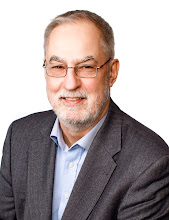Abstract to Mariculture Offshore Conference in June 2010
Karl Iver Dahl-Madsen, President of Danish Aquaculture
Flemming Møhlenberg, Head of Ecological Innovation, DHI
Per Bovbjerg Petersen, Head of Aquaculture, DTU Aqua
Denmark is a global leader in producing healthy and tasty food with a low ecological footprint. We are a nation by the sea and living of the sea. We already have one of the most exposed and highly productive off-coastal trout farms in the world: Musholm A/S with a capacity of 3.000 tons / yr in the open part of the Great Belt. We aim to continue to be part of the nations cultivating the sea by producing significant quantities of food, feed, chemicals and biomass such as fish, mussels and seaweed on off-coastal and off-shore locations.
The Danish sea territory is 105.000 km2, about 2.5 times the land area of Denmark. By using 1 % of this area we can produce fish, mussels and seaweed to a value of 2 billion Euros pr. year. This production will account for 3 million tons of CO2 pr. yr. corresponding to about 5 percent of the Danish CO2 discharge. Furthermore, we can regain 100.000 tons of nitrogen and 10.000 tons of phosphorus from the sea and use it on land. The production will, as an example, substitute the use of 10.000 km2 Brazilian rain forest, and save freshwater in an amount corresponding to 2.5 times the total water use of all Danish households. The associated industry will be located in rural and coastal areas, at present having difficulties in attracting people and companies.
We propose for the Danish Society to establish a platform for development of off-coastal and off-shore aquaculture technology. The development should primarily emphasize cost-efficient and robust culture installations to be situated at open sea, cultivation technology and fully automated farms using state-of-the-art robot and information technology. Secondarily, advanced biotechnology should be used for refining culture species methods and usage of the produced biomass. An investment and demonstration program for risk-sharing in the pioneering installations should be implemented too.



